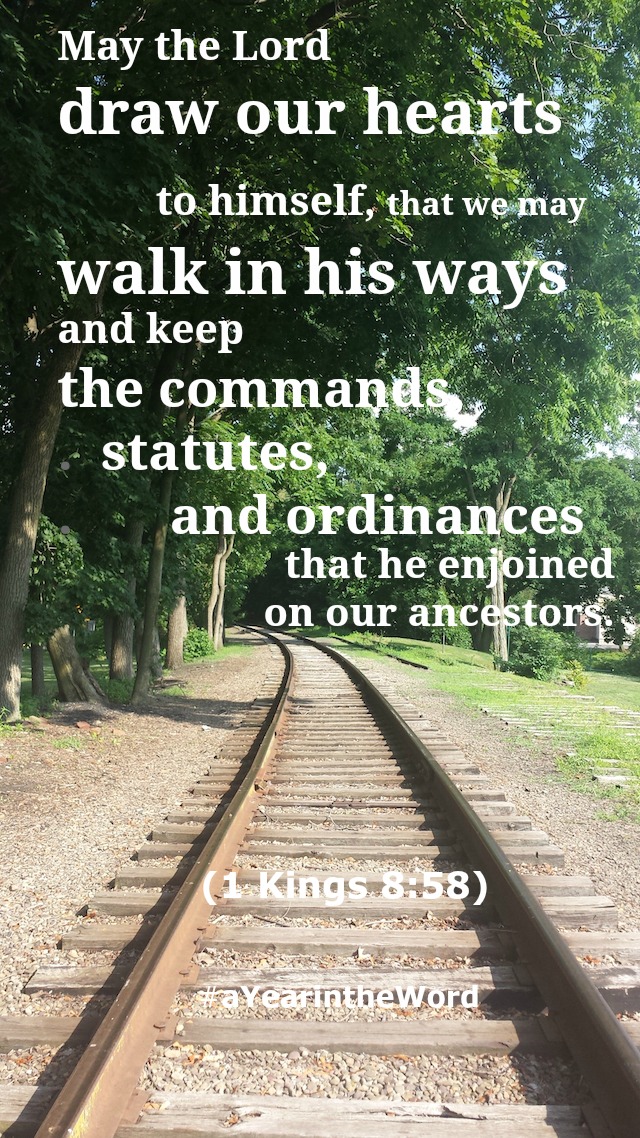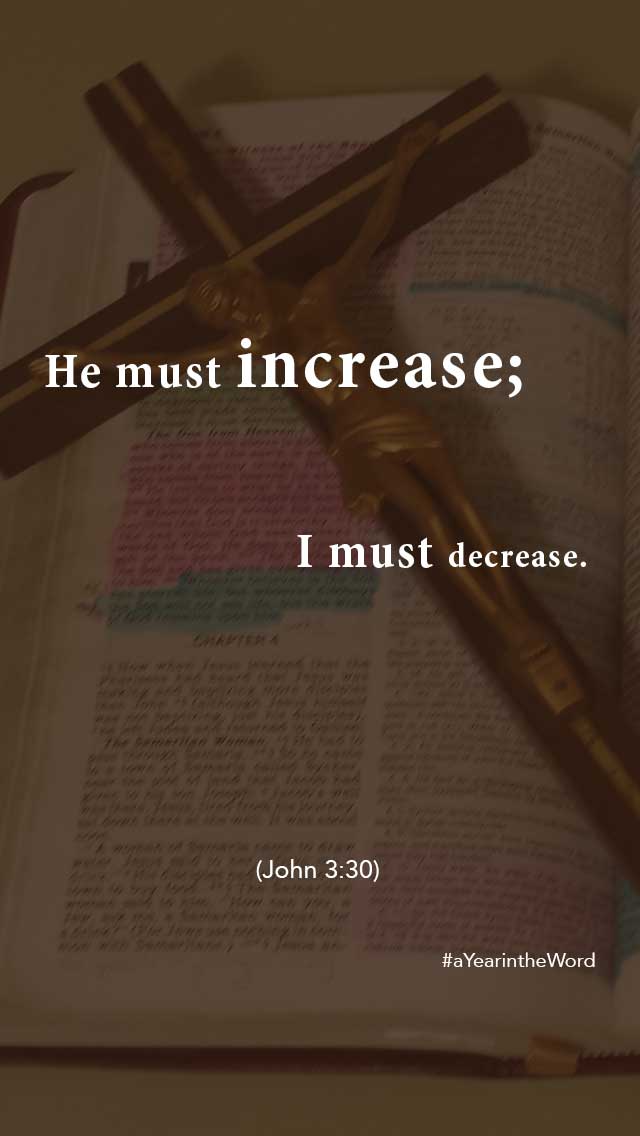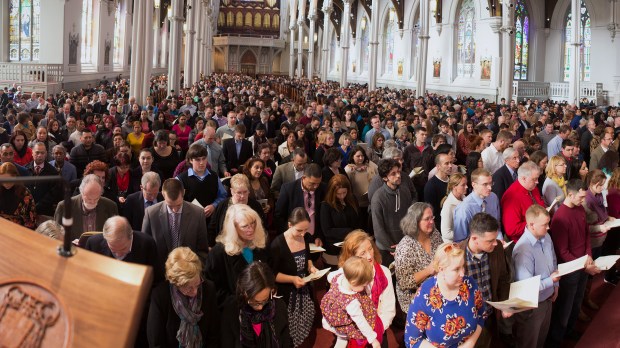May the Lord draw our hearts to himself, that we may walk in his ways and keep the commands, statutes, and ordinances that he enjoined on our ancestors. -1 Kings 8:58
He must increase; I must decrease. -John 3:30
When I was a teacher, I’d often hear my students describing the Catechism as “the rule book.” Each time I overheard it, I’d take a gamble: “Find me a rule.”
“What?” they’d ask.
“Find me a rule. Flip open that book and find me a rule.” And they’d try, but again and again they’d flip to poetic descriptions of God’s love, promises of faithfulness, affirmations of human dignity. Oh, there are rules in there, to be sure. But the bulk of the Catechism, like the bulk of the faith, just isn’t about rules.
Jesus didn’t come to tell people what to wear and how to tithe and who to kiss. Those things matter, of course, but they’re not the point. The point of the Gospel is love, the desperate love of God and the radical love he asks in return.
But love isn’t just a feeling; loving changes how you live. This love story, like every realistic love story, comes with some expectations. “If you love me,” he says, “keep my commandments.” (John 14:15)
And so the Church has spent two millennia explaining how we must live as lovers of God. But somewhere along the line the love story got lost in the minds of many, even those who are living it. And Christianity has become almost synonymous with a moral system, a series of rules you have to follow or you’ll burn in hell.
Even before the coming of Christ, before the effusive love of God became man, back when all he did was gush about his love for us rather than proving it in his body and blood, even then it wasn’t about the rules for the rules’ sake. Every rule has always existed for the sake of love.
Solomon’s prayer in 1 Kings is a marvelous one: may the Lord draw our hearts that we may serve him. Not “may he bind our tongues that we may not curse” or “may he calm our rage that we may not kill.” The drawing of our hearts enables us to follow God’s command, but the following of his command also enables our hearts to be drawn. The prayer here isn’t that we might avoid all wrongdoing so as not to incur the wrath of God but that we might draw closer to him.
This is what Christian morality is really all about: standing with John the Baptist and begging the Lord that our lives might be driven more by his Passion and less by our passions. “He must increase and I must decrease.”
When our hearts are lonely and our bodies long for release, when a sharp word will silence our enemy, when a lie will smooth the way so much more easily than the truth, we could fight sin purely out of fear of hell. And for a time, that will work. But that’s not the point. The point is transformation. The point is love. So instead, we refuse the next drink, accept the unmerited rebuke, speak up in defense of Christ: He must increase, I must decrease. Draw my heart, Lord, that I may walk in your ways.
The reason so many secular people assume that Christians are hypocrites, sinners skilled in deception, is that many of us are. All of us are sinners, of course; there’s no question about that. But many of us fight sin not because we want to please the God who loves us but because we fear his wrath.
When your “virtue” is rooted in fear or self-loathing or stubbornness, it’s weak. There’s only so long you can avoid gossip when your only defense against temptation is, “Don’t gossip, don’t gossip, don’t gossip.” For many of us, it becomes not the sin but the evidence of sin that we want to avoid. If virtue is only external, it soon ceases to be even that.
Virtue isn’t the absence of vice but the presence of Christ. A lover of God doesn’t just turn from sin but turns to Christ. Instead of “don’t judge, don’t judge, don’t judge,” she prays, “Lord, draw my heart. Lord, increase in me. Teach me to love.”
If you’re stuck in your sin, remember: At the heart of it all is a God who wants to live in you. Courage, dear one, and try again.
If you’re following all the rules because they’re rules, invite him in. He doesn’t want just the allegiance of your body but the conversion of your heart.
If you’ve run from the Cross because you can’t take the rules, give him a chance to win you and see if doing right doesn’t come a bit easier when you’re in love.
And wherever you are, far from the Lord or leaning on his breast, ask him to draw your heart. Ask him to increase in you. Living in that love makes sense of all the rules.



